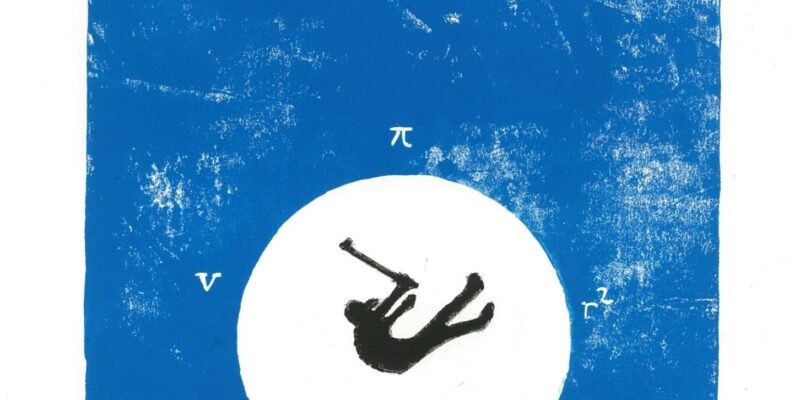By Dr. Stephen Ginsberg – Ginsberg Performance – @drstephenginsberg

“Dearly beloved, today we mourn the passing of James Augustine, a man of remarkable accomplishments. He was a 5-handicap, won the club championship twice, played the most exclusive courses the world has to offer, and, occasionally, threw his club in the water. He earned a nearly inconceivable amount of money, wore the fanciest suits, and drove the fastest cars. Today, we remember James for his many external accomplishments and material successes.”
“Dearly beloved, today we mourn the passing of James Augustine: a devoted husband, father, son, brother, and friend. We feel this deep sadness because the world lost a person of indelible character, generous spirit, and an unfailingly kind heart. When you were with him, you knew you had his full attention and felt deeply impacted by his willingness to listen, help, and challenge when necessary. Today, as we are filled with grief at our shared loss, we honor James’s character and how he enriched our lives.”
Two different eulogies. Two contrasting emotional responses. One great lesson: Who we are is far more important than what we accomplish.

In 2015, author David Brooks penned an op-ed for The New York Times entitled The Moral Bucketlist. In his article, Brooks detailed the difference between what he termed Resume Virtues (the skills, accomplishments and successes one might highlight on a resume) and Eulogy Virtues (the deeper values that reflect one’s moral character and impact on others). Interestingly, Brooks detailed the manner in which we prioritize and societally emphasize the importance of external achievements and accomplishments, rather than the personal values that truly guide our behavior.
Nowhere is this more evident than on the golf course, where handicaps, scores to par, and winning/losing seem to reign supreme. This outcome-focused thinking likely dominates the thinking of the PGA pro all the way down to the weekend warrior. Accomplishments, such as breaking 90-80-70, consume developing golfers and determine one’s definition of ‘success’. Unfortunately, if you hang around the 19th hole long enough, you will hear most golfers consumed by ‘shoulda-, woulda-, and coulda-beens’ all centered around their final score. So, it begs the question: Just as in life, what is success on the golf course?
It is not that accomplishments and achievements don’t matter. They do. But their significance is disproportionate to their true value. Of the hundreds of rounds I’ve played, I rarely remember my score (and certainly not the score of others), but the laughs shared, bonds formed and character displayed by my fellow golfers are unforgettable. Since I took up the game as a teen, I have had the good fortune of playing with fathers, brothers, friends who have become like brothers, and strangers who have become good friends. The connections are not built on career success, financial standing, status, or stellar skills, they are grounded in the kindness, humor, and curiosity displayed on our four-hour walk together.

Jack Nicklaus’s career resume includes 18 major titles, 73 PGA tour wins, and five-time PGA Player of the Year awards— breathtaking statistics. But his most impressive feat came on a windy, overcast day at Royal Birkdale in 1969. Nicklaus and Tony Jacklin arrived tied at the 18th green on the final day of the Ryder Cup, and after Nicklaus made his putt he had a choice: make Jacklin putt his short, but finicky two-footer to halve their match or concede and end the Ryder Cup in a tie. He chose the latter. He chose sportsmanship. He chose respect.
Fifty-four years after ‘The Concession’, Nicklaus’ legacy was undeniable as Rickie Fowler picked up Tommy’ Fleetwood’s marker, took off his hat and conceded the putt to give the Europeans their inevitable Ryder Cup 2023 victory. The gesture illuminated Fowler’s respect for himself, for his opponent and for the game. In defeat, Fowler’s eulogy values shined.
While Arnold Palmer won seven majors, 62 total PGA events, and was named PGA Player of the Year twice, he was probably best known for his deep, meaningful connection to his fans, dubbed ‘Arnie’s Army’. He signed countless autographs, shook every hand extended, and felt that his fans played a pivotal role in his on-course success. This accessibility, fan appreciation, and generosity is what he is most remembered for. This is how you get a drink named after you.
As Scottie Scheffler sauntered off of the 18th green at TPC Sawgrass after winning the Players Championship in commanding fashion, he was warmly embraced by his loving family. Not surprising for a family-oriented, faith-driven, humble man of such high character who often shares that golf is a part of his life, not who he is. So, it should come as no surprise that his father hugged him, pulled him close, and whispered in his ear, “I love you, Scottie, and I’m more proud of who you are than how many tournaments you win.” Yet, another reminder that the finest measure of a person is not career statistics, but rather how he conducts himself along the way.
When scorecards fade and records are forgotten, what’s left are the relationships we’ve built, the character we’ve displayed, and the legacy left behind. So the next time you tee it up, ask yourself: Are you playing for your resume, or are you playing for your eulogy?
Dr. Stephen Ginsberg is a licensed clinical psychologist, specializing in sport and performance psychology. A former college athlete and experienced mental performance consultant, Dr. Ginsberg blends his psychological expertise with firsthand athletic insight to help individuals unlock their full potential. He works with athletes, teams, and executives, offering tailored support through in-office sessions and on-site coaching. Dr. Ginsberg has a particular passion for golf and is dedicated to helping players at every level sharpen their mental game and perform with greater confidence, clarity, and consistency.




